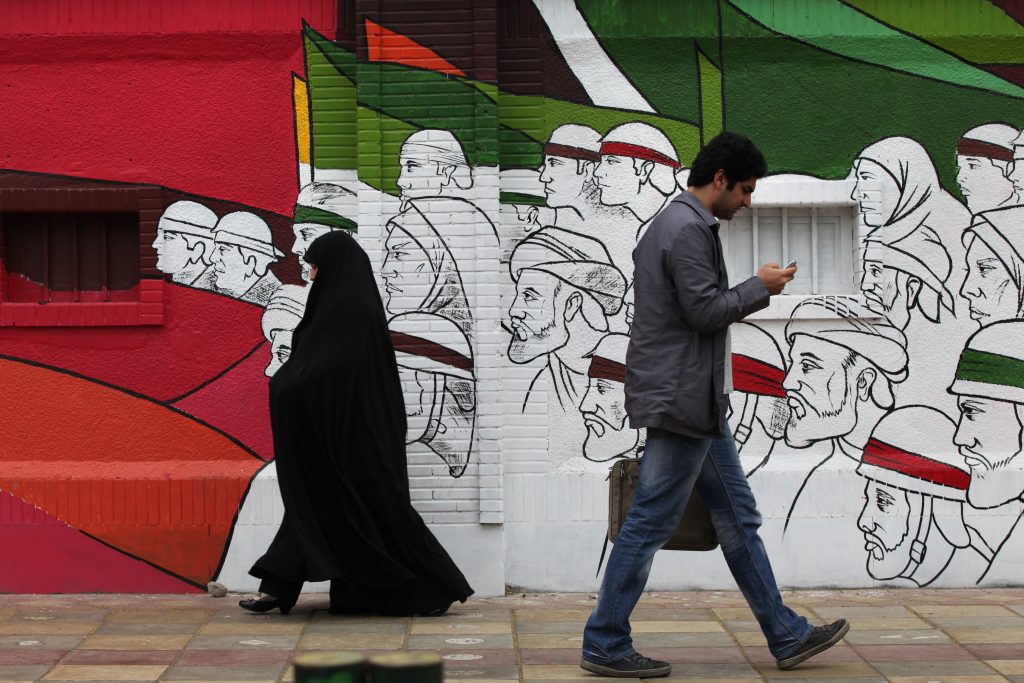IN THE MEDIA
A matter of patience: Tehran’s nuclear timeline versus Washington’s
November 23, 2021 | Ran Porat

‘Whatever is done well enough is done quickly enough.’
— Augustus (63 BC – 14 AD)
Iran’s leadership is made up of extreme religious fundamentalists. It is the most sanctioned government in the world—following decades of pursuing an illegal nuclear-weapons program and promoting international terrorism. This ruling elite paces itself to the beat of a unique perception of historical time, a meta-plan that prophesies Shiite revivalism. All events, positive and negative, are seen as but stages on the way to the coveted and predicted resurrection of a dominant Shiite culture.
A practical implication of this perception is the idea of ‘strategic patience’: sacrifice and enduring hardship are viewed as merely steps on the road to redemption. One manifestation of this is the policy of a ‘resistance economy’, first introduced by Supreme Leader Ali Khamenei in 2013 and aimed at ensuring Iran’s survival under the harsh sanctions imposed on the regime. It calls for domestic economic self-reliance—‘a pattern of domestic economics on the basis of social values and norms, national resources and a highly qualified workforce in order to reduce the vulnerability of the country to international sanctions and even turn these pressures into opportunities’.
This is not to say that the ruling ayatollahs don’t seek an end to the sanctions and their biting effect on Iran’s economy. The regime has been trying to break the economic siege by aligning itself with China and Russia and by illegally exporting oil to China and Venezuela. At the same time, it markets the ‘resistance economy’ as the rationale for the prolonged suffering of the Iranian people (though most Iranians see through this lie).
From Washington’s perspective, the Iranian long-range perception of time is seen as a nuisance. US President Joe Biden needs to focus on the major geostrategic challenges from China (and to a lesser extent Russia) and aspires to deliver quickly on his election promise to re-enter the 2015 Iran nuclear deal (the Joint Comprehensive Plan of Action, or JCPOA).
Time and again, the US special envoy for the Iran negotiations, Robert Malley, has courted Tehran to return to the table, speaking softly and carrying big carrots, but no sticks. Malley projects both a sense of urgency and a lack of consistency, stating on the one hand that ‘Time is not on our side; the JCPOA cannot survive forever’, and on the other, ‘We are always open to diplomatic arrangements with Iran, and we believe that this can only be resolved diplomatically.’ Iranian President Ebrahim Raisi has described the US’s inconsistency as ‘a crisis of decision-making.’
After stalling for five months, Tehran has reluctantly agreed to go back to indirect negotiations with the US in Vienna on 29 November to discuss a return to the JCPOA. This reluctance seems odd, because success in Vienna will most likely result in the sanctions relief Tehran seeks. Yet the regime is in no hurry. When asked in late September when Tehran would sit at the negotiating table again, echoing Iran’s time perception, Foreign Minister Hossein Amir-Abdollahian said ‘soon’, only to explain that ‘the difference between Iranian and Western “soon” is a lot. To us, “soon” means really in the first opportune time—when our reviews have been completed.’
In any case, the probability that the talks will mature into an agreement remains unclear. Iran publicly states that there will be no direct talks with the US, only with the more lenient Europeans. The ayatollahs are not impressed with the soft American responses to direct Iranian provocations (like the Iranian-sponsored attack on the al-Tanf base in Syria, where US soldiers are stationed, on 20 October), which mostly boil down to minor sanctions and toothless statements, but no military retaliation.
Instead, Tehran has been demanding that Washington release US$10 billion that has been frozen by the sanctions prior to any progress in the nuclear negotiations. Once bitten, twice shy in the wake of the 2018 withdrawal from the JCPOA under President Donald Trump, the ruling mullahs warn that there’s no point in continuing the negotiations without an ironclad guarantee from Washington that future administrations won’t reinstate sanctions. Yet this is a promise no US government can truthfully make because it is legally and politically impossible under the US Constitution.
Most significantly, Iran is using the time bought through its stalling tactics to make irreversible progress in its nuclear program—enriching uranium to 60%, almost military grade (93%), and fabricating uranium metal, which is used exclusively for the cores of atomic warheads. A spokesperson for Iran’s atomic energy organization even boasted on 4 November that producing uranium enriched to such levels is generally reserved only for countries with nuclear arms. As this is occurring, Tehran is effectively ‘breaking out’ towards the bomb – gradually pushing out the inspectors from the International Atomic Energy Agency, dramatically reducing their ability to identify clandestine nuclear weapons activities.
These developments mean that a return to the JCPOA in its original format is no longer on the cards, technically or politically.
Iran is expected to use the negotiations to buy more time for the same purpose—moving forward with a nuclear-weapons masterplan—and not to explore compromise with the international community.
Unless the Biden administration and the international community recognise the long game Iran is playing, and find a way to force the regime to understand that its own interests demand a diplomatic agreement with some urgency, expect Tehran’s strategic patience to lead to a nuclear Iran, perhaps much sooner than we expect.





